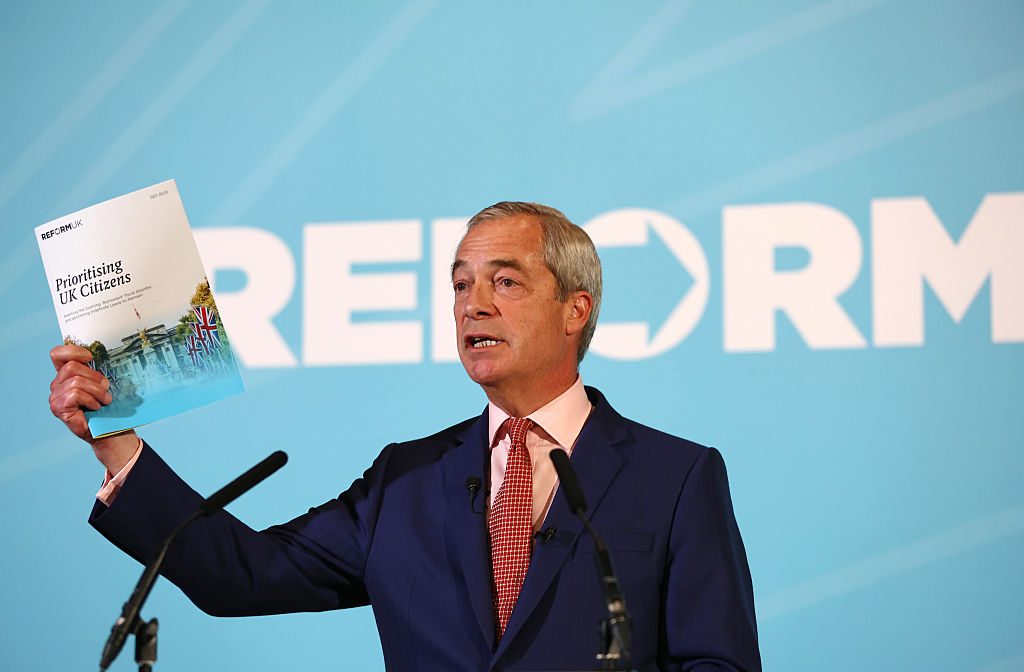Yesterday, Nigel Farage announced the latest step in Reform UK’s plan to radically redefine Britain’s immigration system. Along with newly-appointed policy chief Zia Yusuf, he said the party would abolish indefinite leave to remain (ILR) if it won the next election. They would also scrap the five-year route to settlement, replacing it with a time-limited visa that must be renewed every five years.
It is a bold policy. It marks a significant shift in public debate, moving away from the long-held idea that migration is good for the economy. The plan pledges to break the cycle of “human quantitative easing” by curbing the inflow of workers and ensuring those who do arrive do not push down wages. Such a plan could lead to a significant reduction in the number of migrants who are eligible to arrive in the UK, as well as vastly improve the fiscal profile of those who do.
One of the most radical shifts in this policy is that the Government would be able to manage both existing stocks of migrant workers and new arrivals. Under the five-year visa renewal system, visas can be revoked for those who fail to contribute sufficiently or assimilate, with English proficiency serving as a key benchmark. Reform also plans to introduce an “Acute Skills Shortage Visa”, which would mean that for each employee on this visa, businesses will need to fund a training place for a British worker.
Together, these measures will transform migrant labour from a dependable, below-market source of workers into a costlier and less predictable one. By tying visas so closely to individual performance, the system injects volatility into the foreign labour market and is likely to push businesses towards investing more in training domestic workers. In a Reform-led economy, migrant labour would therefore play a smaller, less reliable but higher-wage role.
Reform’s latest intervention is, in part, designed to prevent another so-called “Boriswave”. This massive increase in purportedly “skilled” migration was promised, and continues to be defended, as a way to secure “the brightest and best” of world talent and thereby grow the economy. Yet calling a wave of migration “skilled” does not make it so — Britain’s economy has been stagnant for several years.
The party claims that preventing those who have arrived since 2021 from gaining (ILR) will save £234 billion. This is, however, based on a calculation by the Centre for Policy Studies which the think tank states should no longer be used. This casts doubt on Reform’s cost calculations — crucial for a platform that pledges bigger welfare spending, paid for by cutting migrant entitlements.
Reform has yet to face the test of central government, and its local record is mixed — especially on immigration. For example, Linden Kemkaran, leader of the newly Reform-controlled Kent County Council, has already lobbied against tightening the health and social care visa. Missteps like this could prove costly: recent polling shows the public overestimate illegal immigration, largely because they underestimate legal arrivals. Part of the problem may be that entry requirements — particularly for the health and social care visa — were so low that many struggle to believe the migrants who arrived during the “Boriswave” did so legally.
This morning that £234 billion is facing even further questions. Reform’s plan has made exceptions for EU citizens with settled status in its proposed restrictions; according to government sources, there are 777,000 foreign nationals with settled status currently claiming Universal Credit. Zia Yusuf addressed this lacuna by stating a Reform government would “open negotiations” with the EU, however, a European diplomat told the Times that the matter was simply not up for negotiation.
For a party that exists almost entirely as a response of the failures of other parties to grasp control of migration, it cannot afford too many unanswered questions on its flagship policy.
Regardless, the reality is that voters are beginning to see immigration less as an economic lever and more as a test of control, fairness, and sovereignty. In that climate, and against the backdrop of decades of stagnant living standards, Reform’s hard-edged proposals look far more compelling to the electorate than Labour’s.
